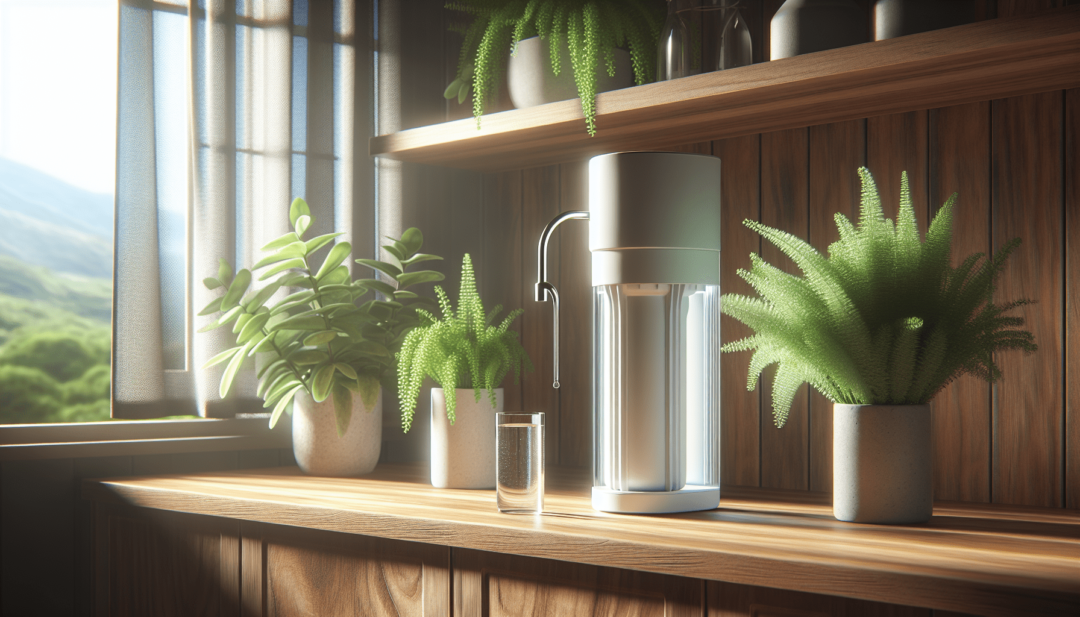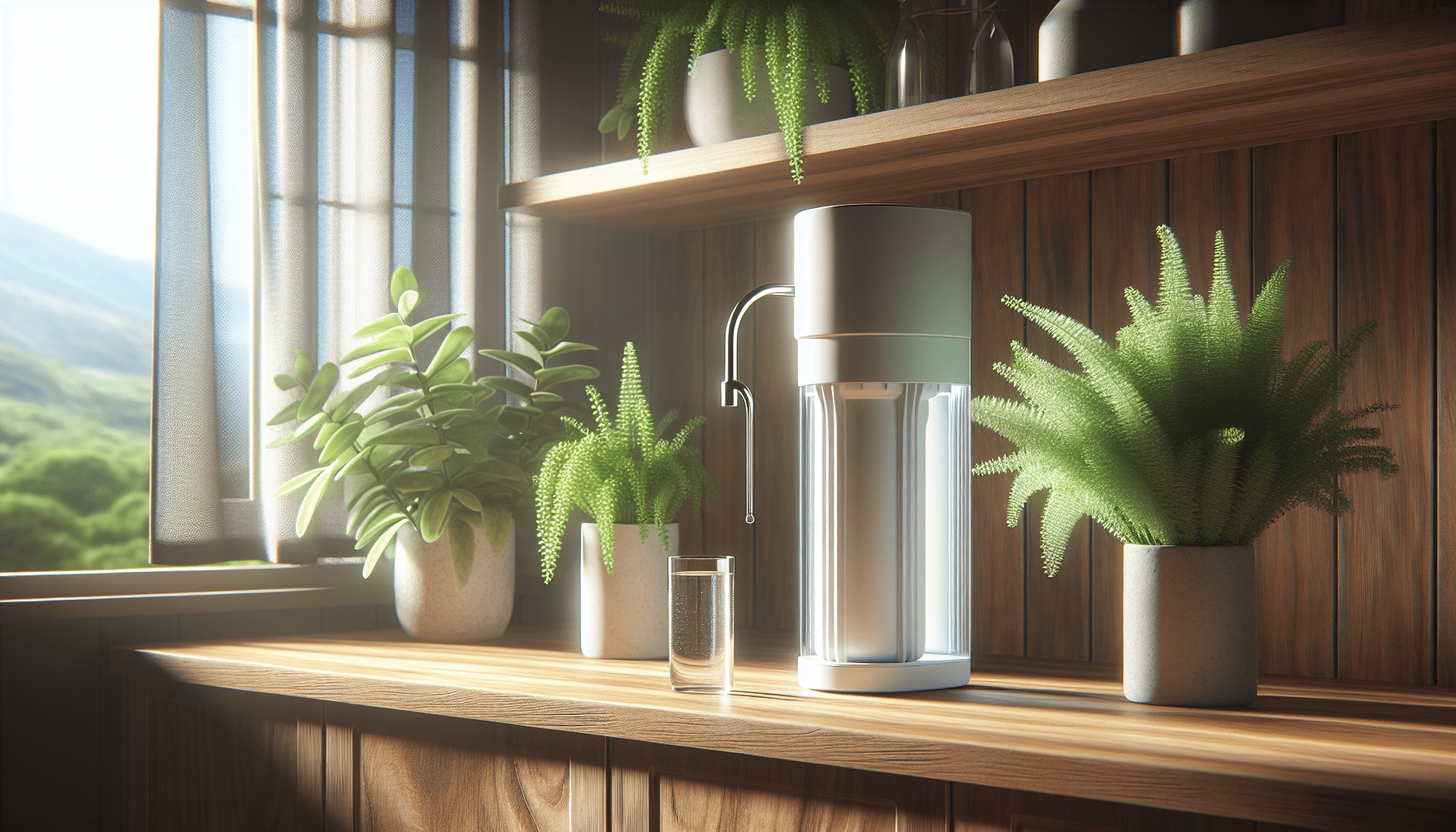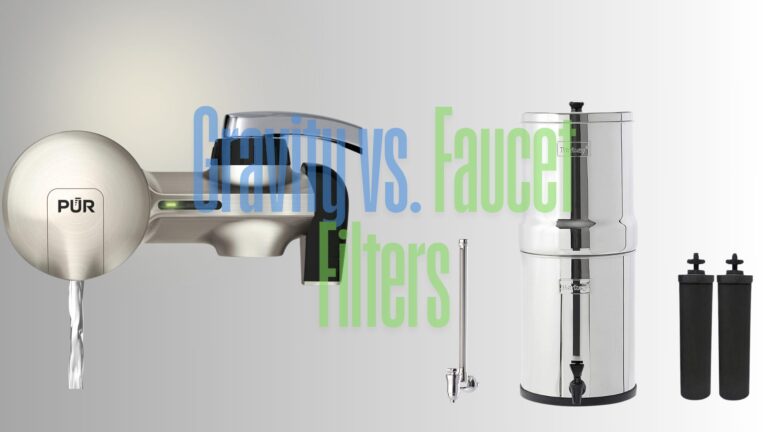Ditch Bottled Water: Go Green with Gravity Filters
Have you ever thought about the environmental impact of your hydration choices? Every sip you take from a plastic bottle has a story behind it, and unfortunately, it often includes a tale of environmental degradation. As our planet faces the mounting challenges of plastic pollution, finding sustainable alternatives for our everyday needs becomes crucial. This brings us to a promising solution: gravity water filters. These eco-friendly devices can help us hydrate without the heavy carbon footprint associated with bottled water. But how exactly do they work, and why might they be the greener choice for our environmentally conscious times? Let’s find out.

Understanding the Issue: The Plastic Bottle Problem
The Environmental Footprint of Bottled Water
Every time you purchase bottled water, you’re not just paying for the convenience; you’re also contributing to a significant environmental impact. Bottled water production requires vast amounts of petroleum, both in creating the bottles and transporting the goods. This process emits carbon dioxide, one of the leading contributors to climate change.
Plastic Waste and Ocean Pollution
Consider the end of a typical plastic bottle’s lifecycle. Many bottles end up in landfills or, worse, our oceans, where they take hundreds of years to decompose. This persisting waste disrupts marine ecosystems and harms aquatic life. Witnessing the detrimental impact of plastic bottles on our natural environment is a crucial motivator for finding alternatives.
A Health Perspective: Bottled Water Concerns
Beyond environmental impacts, bottled water consumption raises health issues. Studies have shown that plastics can leach chemicals into the water, especially when bottles are exposed to heat or stored for long periods. These chemicals may potentially affect human health, making the need for safer hydration options even more pressing.
Gravity Water Filters: An Eco-Friendly Solution
What Are Gravity Water Filters?
Gravity water filters are a type of portable filtration technology that purify water as it passes through various filter media under the influence of gravity. They typically consist of an upper chamber, where you pour unfiltered water, and a lower chamber, where clean, filtered water gathers.
How Gravity Filters Work
As the water moves from the upper to the lower chamber, it travels through a series of filters that trap contaminants. These filters often include materials like activated carbon, ceramic, and sometimes, even advanced filtration media that can remove bacteria, viruses, heavy metals, and other pollutants. This process requires no electricity, making it both eco-friendly and cost-effective.
Benefits of Gravity Water Filters
- Plastic-Free Hydration: Gravity filters reduce or completely eliminate your dependency on single-use plastic bottles.
- Energy Efficiency: With no need for electricity, these filters harness the simple force of gravity to work.
- Long-Term Cost Savings: Once you’ve purchased a system, the only recurring cost is replacing the filters, which is far less expensive than continually buying bottled water.
Comparing Gravity Water Filters to Bottled Water
| Feature | Gravity Water Filters | Bottled Water |
|---|---|---|
| Environmental Impact | Minimal, due to reusable design | High, due to single-use plastic |
| Cost | Lower in long-term usage | High, due to ongoing purchases |
| Convenience | Easy to use but require set-up | Instant convenience, but temporary |
| Health Safety | Excellent, when maintained properly | Potential chemical leaching |
Choosing the Right Gravity Water Filter
Factors to Consider
- Filter Life and Replacement Cost: Check how long the filters last and how much replacements will cost you over time.
- Filtration Capability: Consider what contaminants need to be filtered from your water source and ensure the filter meets these needs.
- Size and Portability: Depending on whether you need a filter for home or travel, choose a model that suits your lifestyle.
Top Brands and Models
Researching and comparing different brands, such as Berkey, Propur, and Platypus, can help you find a gravity water filter that meets your specific needs.
Transitioning to Gravity Water Filters
Steps to Make the Switch
- Evaluate Your Needs: Assess your water consumption needs and how often you rely on bottled water.
- Research and Purchase: Find a gravity water filter that suits your lifestyle and water quality requirements.
- Set Up and Enjoy: Install the filter according to the instructions and enjoy fresh, clean water without the environmental guilt.
Educating Others About Sustainable Hydration
Once you’ve experienced the benefits of gravity water filters, consider sharing your knowledge with others. It’s often small changes that lead to significant impacts, and your advocacy can encourage broader shifts toward sustainable practices.

The Broader Impact of Choosing Sustainable Hydration
Reducing Household Waste
Transitioning to a gravity water filter can significantly decrease the volume of waste your household produces. Over time, these reductions contribute to a decrease in municipal waste management costs and environmental strain.
Supporting Sustainable Innovation
Choosing environmentally friendly products supports companies and industries that prioritize sustainable innovation. This market demand encourages further advancements and more eco-friendly solutions in the future.
A Holistic Approach to Sustainability
Integrating sustainable practices into your daily life goes beyond just water filtration. It includes making conscious choices in various aspects of living, from purchasing biodegradable products to supporting renewable energy.
Addressing Common Concerns
Is the Initial Cost Worth It?
While gravity water filters may have a higher upfront cost than a case of bottled water, the investment pays off over time. With savings accrued from avoiding continuous bottled water purchases, the system eventually pays for itself.
Can Gravity Filters Handle All Contaminants?
Modern gravity filters are highly effective against common household water contaminants like chlorine, heavy metals, and some bacteria and viruses. However, it’s crucial to research and match the capabilities of a specific filter system against your water source needs.
What About Maintenance and Care?
Regular maintenance includes periodic cleaning and timely filter replacement. Keeping a schedule for these tasks ensures optimal performance and longevity for your purification system.
Empowering Each Other to Make Change
Sharing Your Journey
Discussing your transition to gravity water filters with friends and family can inspire others to consider their own environmental impact. Word-of-mouth is a powerful tool for promoting sustainable alternatives.
Building Communities Focused on Sustainability
Online forums and local community groups focused on sustainability topics can provide support, answer questions, and share resources for those interested in reducing their ecological footprint.
Conclusion
As you evaluate your options for sustainable hydration, consider the long-term impact of your choices. Gravity water filters offer a compelling alternative to the plastic-laden world of bottled water, providing a solution that benefits both the individual and the planet. By making mindful choices, you can contribute to a healthier environment and encourage a collective effort toward sustainable living. The next time you reach for hydration, remember that every decision counts, and together, we can make a difference one drop at a time.







